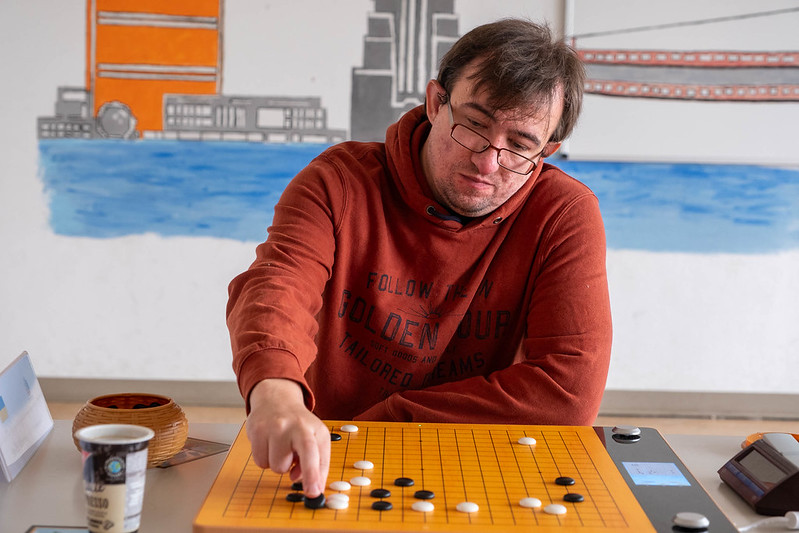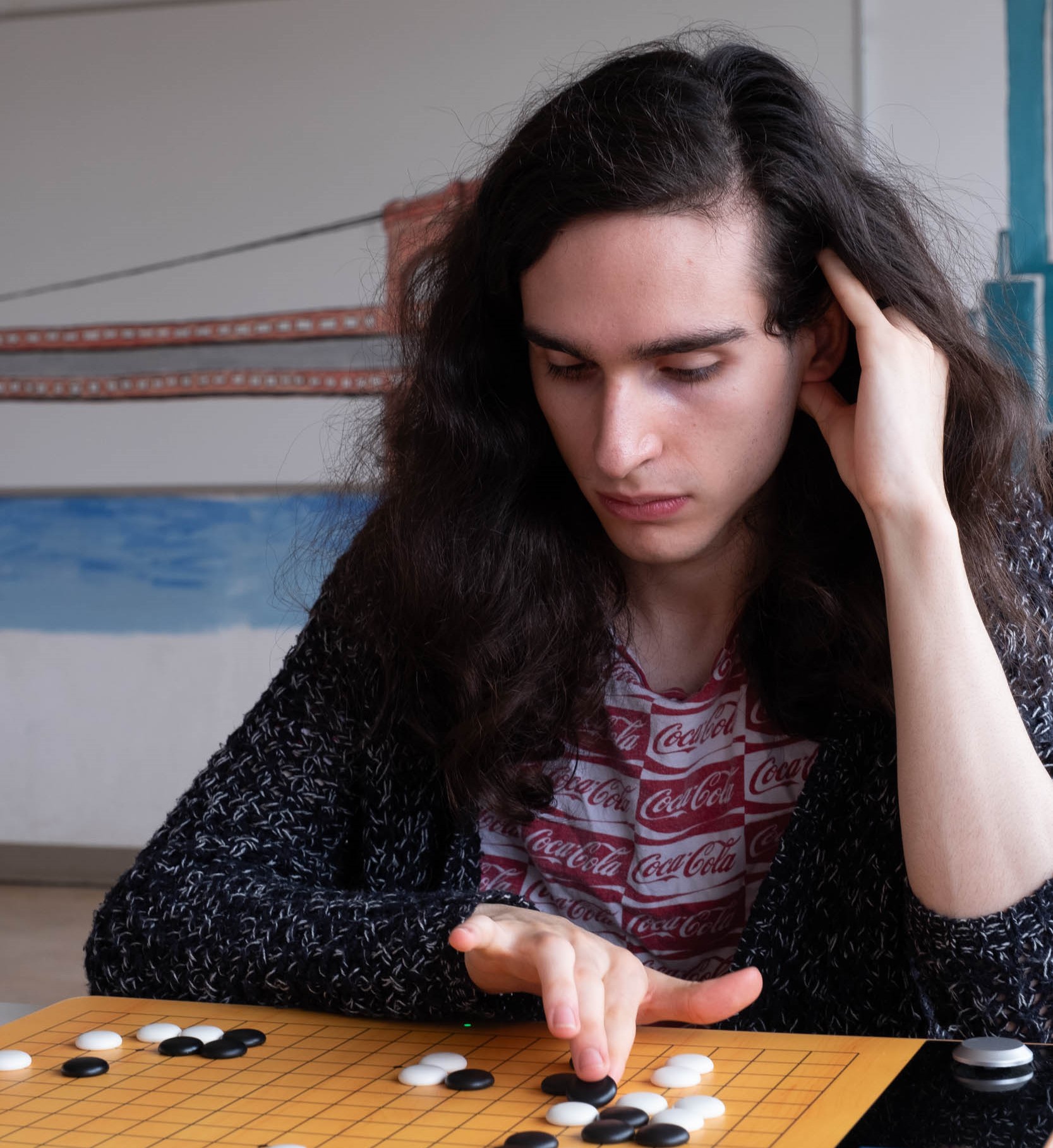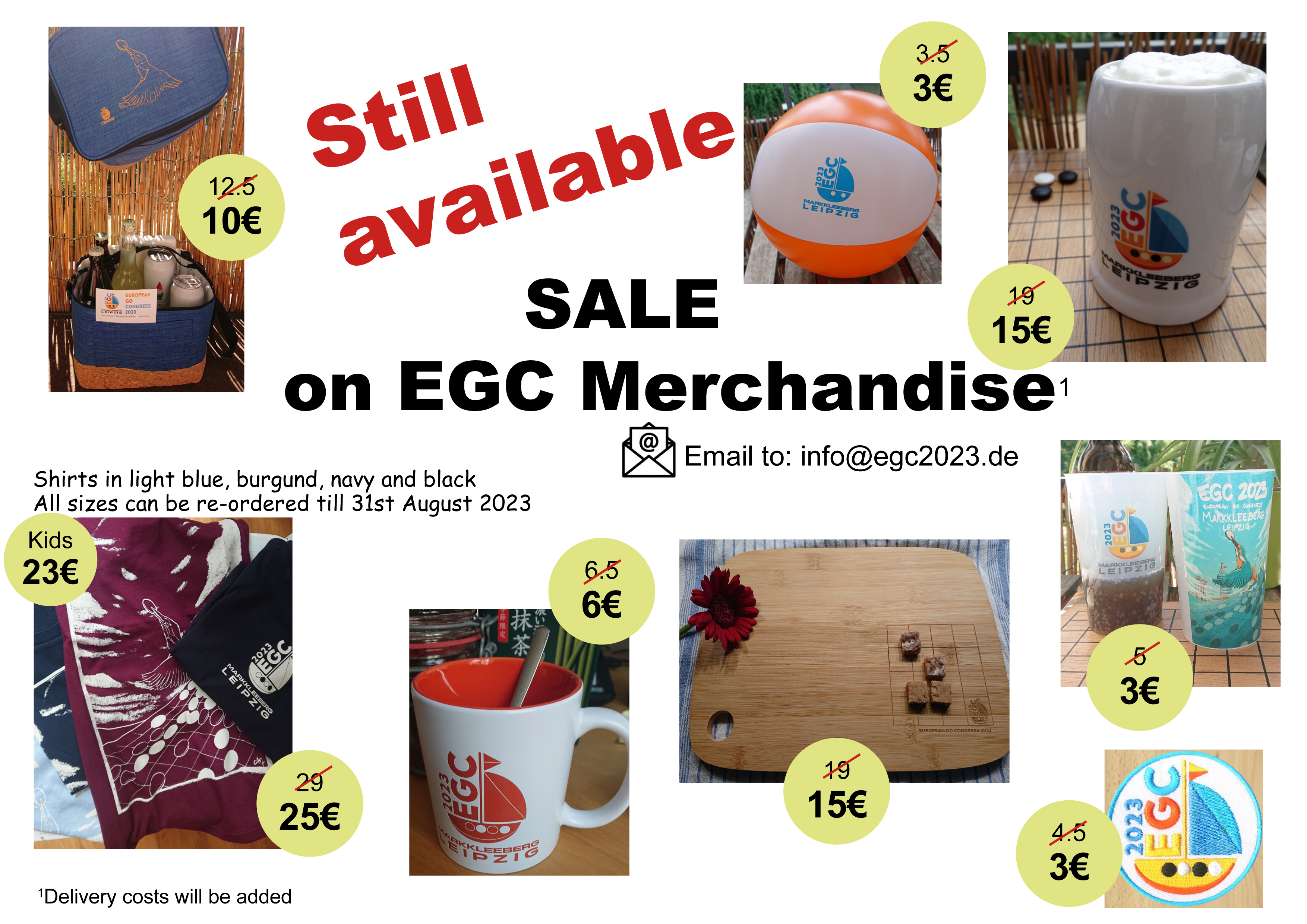
Photos by Harry van der Krogt
The 2023 European Championship has concluded after a week of play and Europe has a new Champion. In a gruelling five-hour final against Ali Jabarin 2p, Andrii Kravets 1p emerged victorious and took the grand prize of €4,000. Thirty-two years old from Ukraine and playing as a pro since 2017, Andrii had never made it to the final before – one attempt was all it took to claim the title. In the small final, deciding the third and fourth places, Ashe Vázquez 7d beat Fredrik Blomback 7d to take the bronze-medal position. Both games were thrilling in their own ways, let’s take a look.
It’s true, the first board was the main event of the day, but Ashe’s game with Fredrik provided all the fireworks. Innovating in the opening once again, Ashe chose to mirror as White for the first 16 moves then interrupt to play two different 3-3 invasion joseki in opposite corners. A mistake in one of them, however, led to Fredrik killing a group on the 45th move and gaining a lead of around 14 points. Though preparation had perhaps failed them, Ashe was resolute; another comeback would be necessary. 100 moves later, Fredrik blundered and suddenly an enormous group in the centre died before his eyes. Ashe’s surrounding stones slipped out of his grasp to safety, and the game was over – Fredrik resigned after 207 moves.

Ashe was one of our picks for young talent to keep an eye on in this event, and they proved that experience isn’t everything. Young though they may be, they clearly feel undaunted by playing at the very top levels of European go against amateurs and professionals alike. Coupled with unconventional openings and strategies for playing against higher-rated players, Ashe’s games are guaranteed entertainment. Fredrik will have to content himself with fourth place this year, but considering his dazzling performance over seven days of play, he has little to be disappointed with.
In the final, Andrii changed nothing about the approach that had served him well all throughout the Championship. He played calmly, avoiding high-stakes confrontations and taking points where he could. Andrii let Ali take all four corners, while keeping the score exactly even. Where his previous opponents had fallen behind in the opening and failed to catch up, Ali had no intention of letting that happen – he resisted this strategy. The game’s complications began with the 40th move, and a little later Ali chose to prioritise points in the centre while Andrii cut off a small group of stones. With this immediate profit in hand, Andrii was back in the situation he had enjoyed in most of his previous games. 50 moves later, when Andrii again had a chance to play sharply by attempting to surround a group of central stones and force Ali to escape with them, our Champion instead backed off and opted for a peaceful variation. While both commentators and AI analysis preferred sharper moves, Andrii seemingly felt no need to raise the stakes more than necessary. In-seong Hwang 8d and Tanguy le Calvé 1p were especially surprised that Andrii was not playing as aggressively as was characteristic of him in years previously, they felt something had changed in his play.
By the 130th move, Andrii was leading by around six points and the endgame began. In the post-game interview, at this point in the game Andrii said he felt confident that he was ahead until points began disappearing as the endgame progressed. Here he started to feel nervous, counting again and again after every move. 46 moves before the end, a small ko appeared. A less than optimal ko threat on Andrii’s part cost him a point and suddenly his winning margin looked like it could almost disappear. But in the final count, Andrii won by 1½ points and the title was his. Ali’s disappointment was clear, he had placed runner-up in this tournament for the fourth time. If this tells us anything, however, it is that we will no doubt see Ali in the final stages of this competition again.

Reporting on this event has been a pleasure, especially due to the insight into the players’ perspectives on their own games. Andrii was modest in victory, ascribing his success to no secret strategy or preparation. He had simply played, and surprised himself; he also said that he had always been capable of playing calmly and defensively depending on his opponent, his go had not changed. Perhaps due to the fact that Andrii has been a part of the elite scene for so many years, though without claiming titles, his potential in this event was underestimated – even by himself. His records in the two most prestigious Congress events, however, the Pandanet Go European Team Championship and the European Championship, speak for themselves. Playing on Ukraine’s second board in the league stage of this year’s PGETC, comprising nine games played over eight months, Andrii didn’t lose a single game. In the finals played last weekend, he dropped one and won the trophy for his country anyway.
Achievements like this, followed up without a day’s break by his unfaltering run in the EC, are not attained by accident. They are the evidence of a true talent, of patient experience and a remarkable coolheadedness. Andrii Kravets 1p is the 2023 European Champion, and a worthy one at that.



